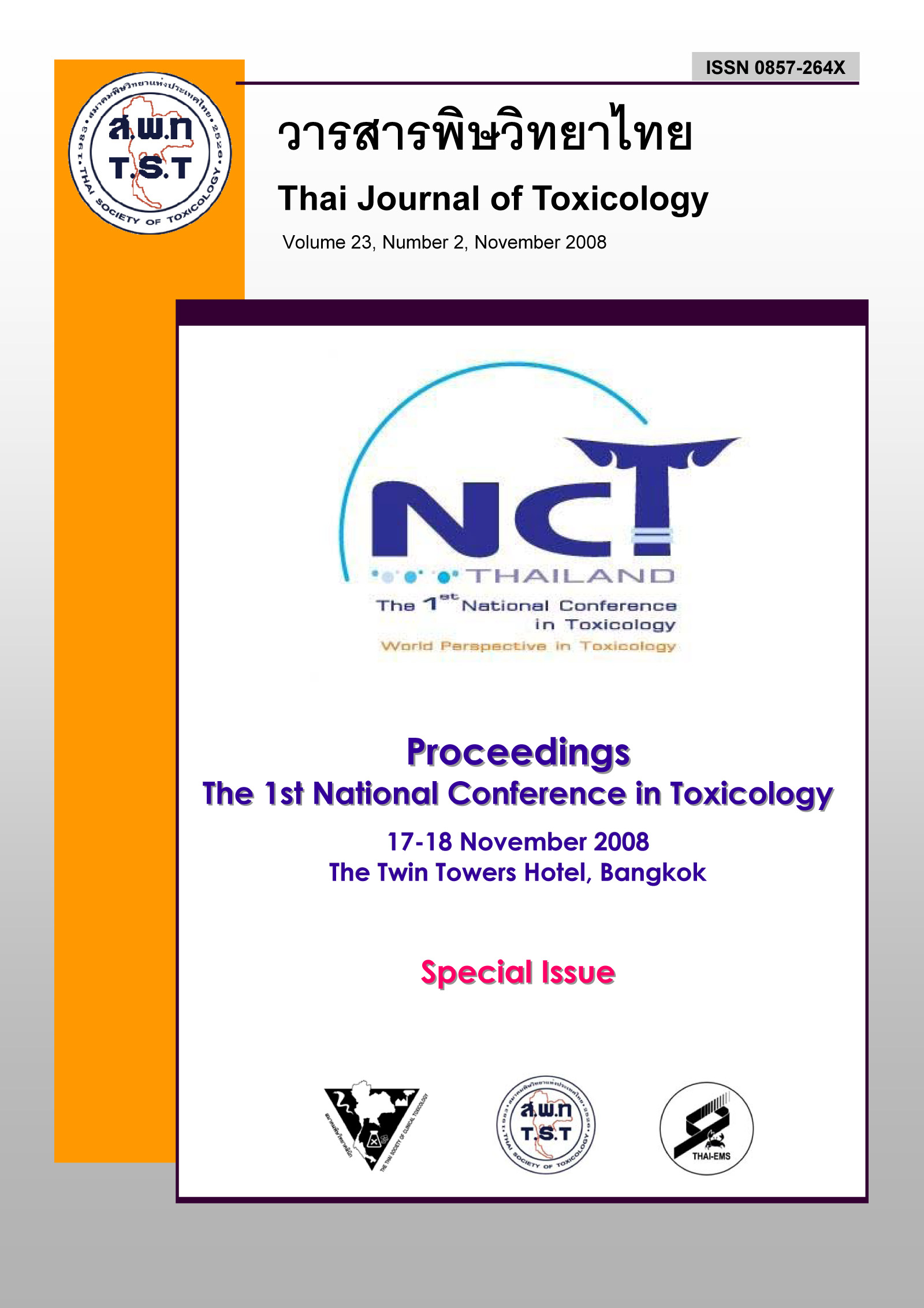Different Antimutagenicity against Urethane between Conventionally and Organically Grown Cruciferous Vegetables (Brassica spp.)
Main Article Content
Abstract
We lyophilized conventionally and organically grown Brassica vegetables (white cabbage, red cabbage, Chinese kale, Chinese mustard and cauliflower) and determined for their antimutagenicity against urethane in Drosophila melanogaster. We transferred three-day old trans-heterozygous (mwh flr+/mwh TM3) larvae from regular medium to experimental medium that had 20 mM urethane as the co-administration study. In the pre-feeding studies, we mated the parental flies on the experimental medium to obtain three-day old larvae that were subsequently raised on the regular medium containing urethane as the type 1 study or the experimental medium containing urethane as the type 2 study. The mutant spots of the wings from the surviving flies were analyzed. In the co-administration study, the antimutagenicity of conventional Chinese kale, Chinese mustard and cauliflower was higher than that of the organic ones while organic white cabbage had higher antimutagenicity than that of conventional one. In the pre-feeding studies, most samples (except organic cauliflower) exhibited their antimutagenicity. The antimutagenicity of the samples might be due to induction the phase 2 detoxifying enzyme system of Drosophila by isothiocyanates commonly found in Brassica vegetables. Since most organically grown vegetables are vulnerable to insect infestation that initialize the hydrolysis of their glucosinolates to be unstable isothiocyanates; therefore, the antimutagenicity of organic Chinese kale, Chinese mustard and cauliflower was lower than that of conventional ones. We also found no difference among red cabbages. Surprisingly, the antioxidant activity (DPPH scavenging capacity and ferric reducing antioxidant power) and amount of phenolic compounds (determined using the Folin-Ciocalteu reagent) of all organic vegetables were higher than that of the conventional ones.


